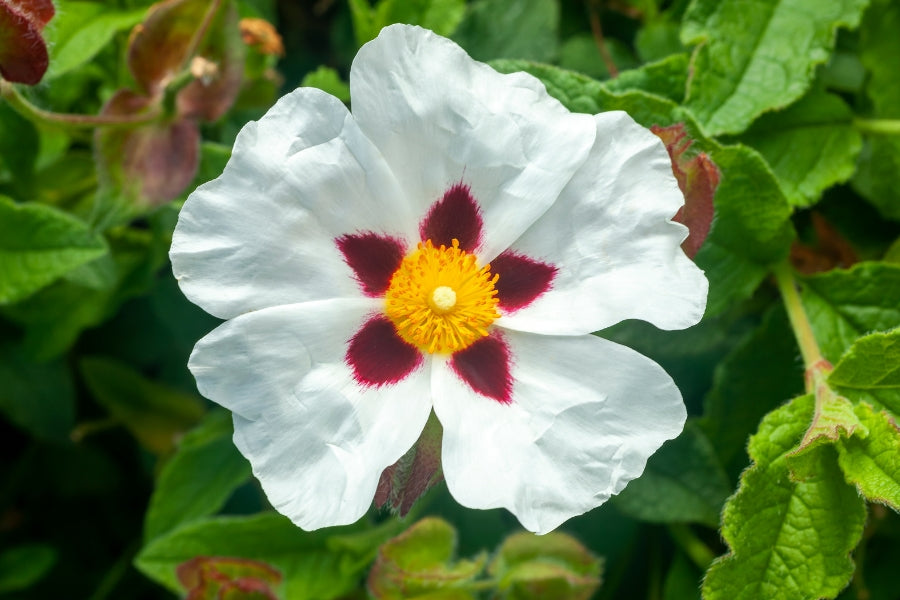
Comparing Natural and Synthetic Amber in Perfumes: An Olfactory Odyssey
valérie demarsThe quest for the perfect fragrance is often fraught with mysterious ingredients and technical terms. But how about simplifying it all? Today, let's dive into the fascinating world of fragrances, with a focus on a highly prized ingredient in perfumery: amber.
Amber, you're probably familiar with mineral amber, which is a fossilized resin but isn't used in perfumery. But are you familiar with animal amber, which gave ancient perfumes such a strong, warm note? This secretion comes from sperm whale droppings, which, after many years, are carried by the waves of the sea, give off such a sweet and precious scent. But did you know that synthetic amber also exists?
In this article, we'll compare natural and synthetic amber, and see how they influence the intoxicating world of perfumes.
The Essence of Amber
Have you ever wondered what makes a perfume so captivating? One of the most coveted ingredients is amber. But make no mistake, amber isn't a single essence, but rather a complex blend of scents that evoke warmth, sweetness, and often a mysterious earthiness. It's an accord of balsamic notes: vanilla, benzoin, and labdanum.
Natural Amber: a thousand-year-old treasure and an animal treasure
Natural amber is also a fossil resin, the result of millions of years of transformation. Each piece is a journey through time, carrying within it the history of the Earth. Its fragrance is just as rich and nuanced, a symphony of notes that have charmed humanity for centuries. But this is not the mineral that was once used in perfumery. In some older perfumes, ambergris, a sperm whale excrement, is still used . Except in vegan perfumes, where the amber accord is reproduced using plant essences.
Synthetic Amber: The Science Behind the Scent
Faced with the cost and scarcity of natural amber, science has created an alternative: synthetic amber. These aromas, made in a laboratory, mimic natural amber.
Vegetable amber: another way to bring this wonderful scent
In natural perfumery, when we want this warm, amber scent, we create an accord with vanilla, cistus labdanum, and benzoin. We then obtain a sweet and powerful amber scent.
- Vanilla : Its scent is associated with warmth and relaxation. It is also reassuring and comforting, and can help with depression and anxiety, as well as mental fatigue, fatigue, and lack of self-confidence. It promotes sleep and can reduce stress.
- Cistus : Its warm scent associates cistus with comfort. It has calming and regulating properties for both physical and psychological inflammation. Cistus ladanifer is also effective in cases of anger, irritability, and phobias. It helps you let go and boosts self-confidence. It also rebalances the nervous system.
- Benzoin : It is appreciated for its physical and psychological relaxing properties. Linked to the 2nd chakra, benzoin promotes contact with emotions and the trust we have in others. Comforting and consoling in nature, it is particularly appreciated in cases of emotional shock, or agitation, chronic anxiety and sleep disorders.
How to choose between natural and synthetic amber? Tips for consumers
Faced with the embarrassment of choice, how can a perfume lover decide? The choice between natural, plant-based amber and synthetic amber corresponds to your preferences and personal values. On the one hand, a compound produced in a laboratory, far from nature, and whose interactions with the human body are never trivial. On the other, a product derived from nature, a virtuous blend of three components with soothing and calming properties.
As with all natural perfumery, your preference for a scent has something to do with the care it provides you. If you're drawn to a particular scent, you likely "need" the energetic properties of the plants associated with it.
In the case of amber, the virtuous alliance of vanilla, cistus and benzoin, suits you when your inner state is agitated, disturbed, occasionally or chronically.
Conclusion: Which amber is right for you?
At the end of this olfactory odyssey, one question remains: what type of amber resonates with your soul? Whether it's the mystical depth of natural amber or the bold modernity of synthetic amber, the choice is yours. Plant-based amber is the natural alternative we've chosen at Aimée de Mars, for a fragrance-care product that positively impacts your emotional state.
Here are the Aimée de Mars perfumes associated with the amber scent:
- Sensual sulis
- Amethyst Mystic
- Amber Lily
- Ambre alchemia room fragrance in sticks or spray
- Sadhana Candle
FAQs
What is the main difference between natural and synthetic amber in perfumes?
Natural amber is rare and valuable if it comes from the sperm whale, with a complex and rich aroma. Its scent is exceptional, its price too, but most importantly, should we use animal droppings? Synthetic amber, created in a laboratory, seeks to mimic these aromas but without the same depth or unique character.
Why is natural amber often more expensive than synthetic amber?
Natural amber is expensive due to its rarity. Synthetic amber, which is easier to mass produce, is generally more affordable.
Can you really differentiate natural from synthetic amber in a perfume?
Yes, connoisseurs can often distinguish the subtle nuances and complexity of natural amber from the synthetic version, although modern synthetics are becoming more and more convincing.
How do I choose between natural amber perfume and synthetic amber perfume?
Consider your personal preferences, budget, and values, especially those related to sustainability and ethics. Experiment with different fragrances and trust your nose—it will guide you to the scent that suits you best.
Ultimately, whether you're drawn to the timeless charm of natural amber or the bold innovation of synthetic amber, your ideal fragrance awaits. Enjoy exploring this fascinating olfactory universe!

